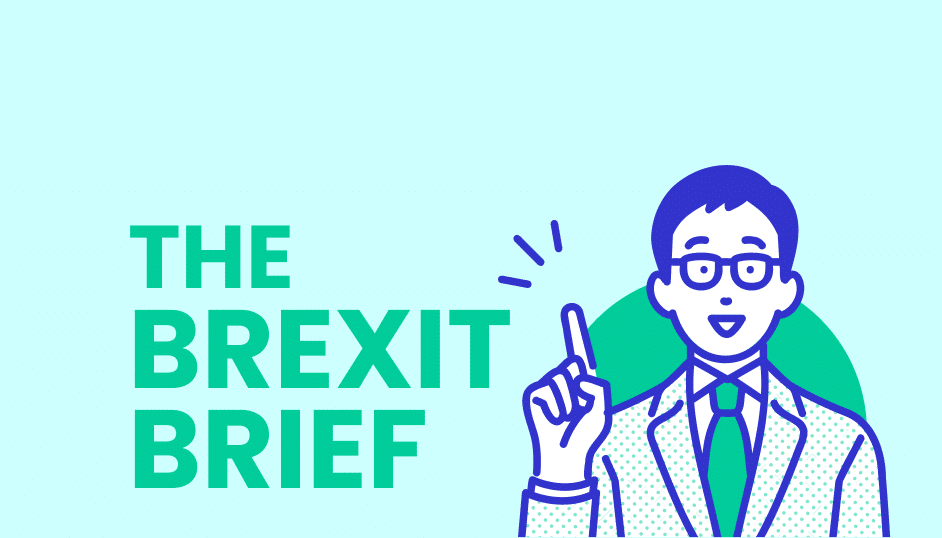



Welcome to the Brexit Brief! In this newsletter for UK citizens living in Brussels or thinking of moving here, we will explore some of the more complicated aspects of life after Brexit. Each edition will start from a puzzling everyday question, using it as a chance to explore the rules that UK citizens should know about.
During the Brexit negotiations, it was agreed that UK citizens would not need a visa to enter the EU and/or Schengen Area for a short visit. Nevertheless, the UK’s departure from the EU still marked the end of freedom of movement for UK citizens. Whether they are travelling to Europe to visit family, as a tourist, or for work purposes, UK citizens residing in the UK are now in the same position as any other visa-exempt third-country nationals, such as citizens of Australia, Japan, or the US. The EU-UK Trade and Cooperation Agreement may have brought some clarity to commercial relationships and the movement of goods, but it did not offer much in terms of mobility for people.
In this edition of the Brexit Brief we explore the new landscape for UK citizens wishing to visit Belgium. This information does not apply to UK citizens already resident in Belgium, but it is exactly the kind of information you might need to give your family, friends, and colleagues before they pack their bags for a visit.
So, you want to come to Brussels? There are several factors to consider before your trip to Belgium:
UK citizens do not need a visa to enter the EU/Schengen Area, but they are not allowed to remain indefinitely. UK citizens living in the UK can spend a maximum of 90 days in the Schengen Area within any 180-day period (calculated on a rolling basis). To know how many days are remaining in your allowance and stay compliant with the Schengen rules, you need to calculate the number of days you have already spent anywhere in the Schengen Area during the last 180-day period. This includes all visits for family, tourism, and business purposes which took place in the 180 days before your planned travel date. If you need to stay longer than 90 days in Belgium or the wider Schengen Area during any 180-day period, a long-stay visa or a residence permit will be required.
Make sure you consider the days spent in all Schengen Area countries*, including the non-EU countries which are in the Area: Iceland, Norway, Lichtenstein, and Switzerland. On the other hand, Bulgaria, Cyprus and Romania are EU members but currently not members of the Schengen Area, so you have a separate allowance for these countries. Ireland is also outside the Schengen Area and has maintained the Common Travel Area with the UK, so you can travel and live their freely. Time spent in these non-Schengen countries does not use up your Schengen Area allowance, which is the allowance you will use when visiting Belgium.
Until the EES is activated (see below), it is strongly encouraged that UK citizens living in the UK always make sure their passports are stamped upon entry to and exit from the Schengen Area. This will help you and the authorities to keep track of the used allowance and avoid overstay, which can lead to sanctions. The EU has created a tool to help travellers monitor their Schengen Area Allowance. The tool is a useful support, but it is for demonstrative purposes only and does not grant the traveller any protection against overstay liability.
The second factor to consider is the documents you need to carry while travelling to the Schengen Area. In most cases, these documents will not be requested during border checks (except your passport, of course). However, border guards can ask for additional proof of the purpose of your trip, so it is recommended that you carry this evidence just in case.
Your travel document will always be your UK passport. To enter the Schengen Area, your passport must meet two conditions:
Just like for other visa-exempt citizens, border authorities may request to see other documents as evidence of the purpose of your trip. Which document you should carry will depend on the reason for your visit. Here are a few situations which give concrete examples.
These documents are not mandatory, and it is unlikely that you will be asked for them. However, for peace of mind when crossing the border, it is recommended to carry with you:
For business trips, in addition to the documents for a tourist/family visitor, it would be good to carry with you:
The invitation letter should state the reason for your visit. Note that if the reason for your visit does not fall under the scope of business visits as regulated by Belgium, you will need a work authorisation.
This situation is slightly more complex. When you are crossing the border, the list of documents for business trips is still recommended, but not mandatory.
However, if the assignment requires a work permit before you start working at the client site, you must obtain it before you travel, and you must carry it with you. In addition, your employer may also need to file a Posted Worker Notification to notify local employment authorities of your presence at that client site. Lastly, you will need a certificate of social security coverage. This document is a proof that you continue to be employed and pay social security contributions in the UK, so an affiliation to the Belgian social security system is not needed.
These new external border management tools will apply to UK citizens who live in the UK and visit EU countries like Belgium.
The Entry/Exit System (EES) will be a fully automated IT system registering non-EU citizens who travel to and from the EU, whether they need a visa or not. However, only biometric passport holders will be subject to automatic checks. Regular passport holders will be subject to manual checks by border guards, which can be lengthier. The EES is currently expected to be fully operational in October 2024, but the exact timeline is pending confirmation by the EU authorities. Keep an eye on this website for more information.
Following the launch of EES, the EU will also be launching its European Travel Information and Authorisation System (ETIAS). This will be a travel authorisation system – much like ESTA in the USA. Visa-exempt travellers, such as UK citizens, will have to obtain ETIAS authorisation before entering the Schengen Area and Bulgaria, Cyprus, or Romania. ETIAS is expected in 2025, but the exact launch date is yet to be announced.
To receive travel authorisation, travellers will have to complete an online ETIAS application before their trip, providing information such as passport details and email address, and paying a small fee. ETIAS will then perform detailed security checks to determine whether a person is allowed to enter the Schengen Area. ETIAS will be valid for up to three years or until the expiration of the travel document (multiple entries will be allowed). Please be aware that several fraudulent ETIAS websites now exist in multiple languages. As the ETIAS application process will require travellers to submit personal information such as passport details and a credit card number, it is important to know that this website is the only official information source.
Ireland is not part of the Schengen Area and is currently not planning to join, therefore ETIAS will not apply to visa-exempt nationals traveling to Ireland.
Belgium and the EU remain open and welcoming for UK citizens who want to visit their loved ones, explore the attractions, or do business. In most cases, the paperwork and preparation for these visits will be simple and painless, and UK citizens should not expect long or invasive checks at the EU border. However, UK citizens are now third-country nationals, so the rules are more complex than before Brexit. Both UK travellers to Belgium and their friends or colleagues based in Brussels should make sure they are up to date on the new rules and that visitors have the required paperwork before travel. Finally, make sure to keep an eye out for the launch of ETIAS. This will be a quick and easy procedure, but it will mark the first time in decades that UK citizens will need to make sure they apply for an entry document in advance of their trips to the EU, including Belgium.
*Schengen Area countries: Austria, Belgium, Czech Republic, Croatia, Denmark, Estonia, Finland, France, Germany, Greece, Hungary, Iceland, Italy, Latvia, Liechtenstein, Lithuania, Luxembourg, Malta, Netherlands, Norway, Poland, Portugal, Slovakia, Slovenia, Spain, Sweden, and Switzerland.
Welcome to the Brexit Brief! In this newsletter for UK citizens living in Brussels or thinking of moving here, we explore some of the more complicated aspects of life after Brexit. Each edition starts from a puzzling everyday question, using it as a chance to present the rules that UK citizens should know about. Some newsletters are relevant for M-Card holders, some for those arriving after Brexit, and some for all UK citizens. This newsletter is part of a project funded by the EU’s Brexit Adjustment Reserve, in which we are also developing a series of webinars and an online Brexit Helpdesk. To receive this monthly newsletter straight to your inbox, sign up today!
These pages, webinars and newsletters have been developed in a project funded by the EU’s Brexit Adjustment Reserve.

past events